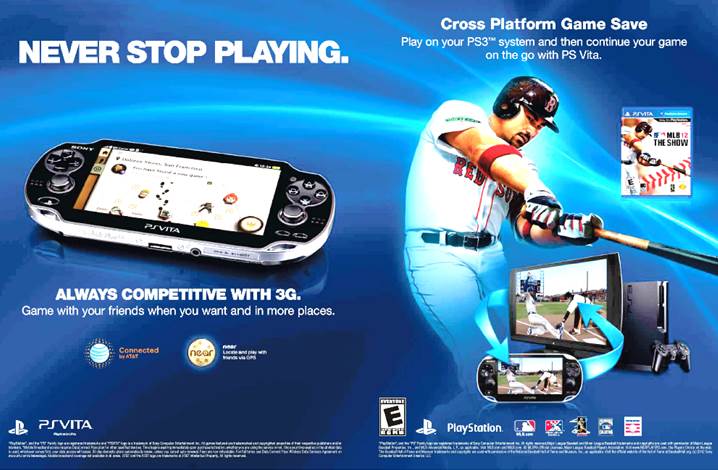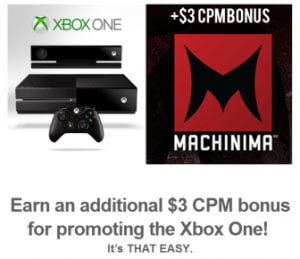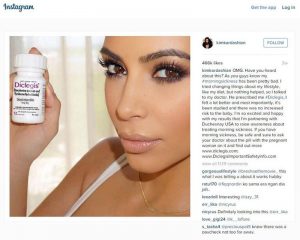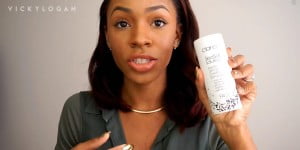Last updated on June 14th, 2024

When you see a celebrity on a TV commercial talking about a product, you always know for sure that they’re being paid for their endorsements.
But what about YouTube and Instagram influencers, and those on other social media platforms? Is there a reasonable expectation that people will know the difference between when they’re just expressing their opinion about a product or service and when they’ve been paid or given the product by a sponsor? And does it matter?
Well, government watchdogs are increasingly saying that it does matter. But online media crosses international boundaries with no one legal jurisdiction. How do brands navigate international laws when they simply want to get the word out about how awesome their products are?
The FTC recently finalized a few settlements in this area, following up on their December publication of “Native Advertising: A Guide for Businesses.” This is a complement to the Q&A-structured guidelines outlined in “The FTC’s Endorsement Guides: What People Are Asking” from May 2015.
Mostly, it comes down to disclosure. Essentially the FTC wants influencers to disclose that they have received monetary incentive or something of value from the brand or the brand’s representative. And the disclosure has to be prominent, and influencers can’t make false claims about the products. Importantly, the sponsor is responsible for the influencer’s compliance with these rules.
The legal landscape of influencer marketing seems to still be in flux, but let’s look at some ways influencer marketing has gone awry in the past so you can know how to navigate this minefield. This is not legal advice, but a common-sense description that should give you an idea of how to begin the compliance portion of your influencer marketing campaign.

1) PlayStation Vita and Deutsch LA
Issue created: 2011 and 2012
Issue settled: 2015
Platform: Twitter
Category: Video Games
Enforcing Authority: FTC
In 2015 the Federal Trade Commission settled charges against Deutsch LA for having its employees tweet – using their personal accounts – in support of their client, the Sony PlayStation Vita back in 2011 and 2012. The casual tweeting probably didn’t actually help the campaign much – most campaigns don’t rely on a few employees getting the word out. But it caused problems nevertheless.
The FTC’s order with Deutsch LA barred “misrepresentations that an endorser of any game console product or video game product is an independent user or ordinary consumer of the product.”
Did the employees get paid extra to tweet? Unlikely. But it doesn’t matter. If they had added #sponsored, #ad, and/or #client in the tweet this particular issue probably would never have come up. Disclosure would have solved this problem.

2) Oreo, Mondelez and the Lick Race
Issue created: 2014
Issue settled: 2015
Platform: YouTube
Category: CPG
Enforcing Authority: ASA (United Kingdom)
In 2015 the United Kingdom Advertising Standards Authority issued a warning to Mondelez UK due to the promotion where it paid five popular U.K YouTubers to do an “Oreo Lick Race” on their YouTube channels. What went wrong? The YouTubers did not say they were being paid.
In the UK, ads must be clearly identified as such, and “given that these ads were on online video channels that were usually editorial based, the commercial intent would have needed to be made clear before viewers engaged with the content.” This means, according to our non-lawyerly reading, that disclosing the sponsorship with the words #sponsored or #ad in the video title would have sufficed, and/or similar phrasing in the thumbnail. NOTE: This is for UK promotions, not for U.S. But it may be wise to consider international boundaries if you think you might fall into trouble due to your viewers being international.

3) Lord & Taylor and the Instagram Dress
Issue created: 2015
Issue settled: 2016
Platform: Instagram
Category: Fashion
Enforcing Authority: FTC
In a recent settlement with the FTC, Lord & Taylor agreed to make sure in future campaigns that its influencers properly disclose when they are paid to promote the company’s products. Last year, Lord & Taylor paid Instagram fashion influencers between $1,000 and $4,000 to post photos promoting a dress they received for free. Importantly, FTC said Lord & Taylor was responsible for compliance on the social media channels that they work with. Here’s the FTC ruling.

4) Machinima and Xbox One
Issue created: 2013
Issue settled: 2016
Platform: YouTube
Category: Video Games
Enforcing Authority: FTC
In late 2013, Machinima paid five YouTube gamers between $15,000 and $30,000 each, resulting in more than 300 individual videos that endorsed Xbox One as part of marketing campaign managed by Microsoft’s advertising agency, Starcom MediaVest Group. The gamers did not disclose the relationship and Machinima or Xbox, and Machinima later settled with the FTC.
In FTC’s Machinima order, the company must follow up with influencers of future campaigns within 90 days to ensure that they disclosed the relationship.

5) The FDA and Kim Kardashian
Issue created: 2015
Issue settled: 2016
Platform: Instagram
Category: Prescription Drugs
Enforcing Authority: Food and Drug Administration (FDA)
It’s not just the FTC that may have a problem with a brand’s influencer marketing strategy. In 2015, the FDA sent drug maker Diclegis a warning letter because Kim Kardashian had promoted the morning sickness drug without disclosing its potential side effects. Note that while they were not cited by the FTC, Kardashian also did not disclose using the hashtag “#ad” or “#sponsored”. Later she just said she had a partnership with the company. She did a second post of the ad which seemed to solve the FDA issue by listing extensive possible side effects, including the fact that “Diclegis can pass into your breast milk and may harm your baby.” And this new post did have the word “ad,” specifically “#CorrectiveAd”, which was a unique-but-accurate description. Both influencer marketing posts got more than 400k likes.

6) Non-Paid Influencers
Issue created: None public to date
Issue settled: None public to date
Platform: All
Category: All
Enforcing Authority: FTC and Internal Revenue Service
While it’s clear that paid influencers should file taxes on their income, what’s not been publicized is that even if influencers just receive product and do product reviews, with no money changing hands, a taxable activity may be taking place. At this time, some companies that send products worth more than $600 per year to non-paid influencers do require the influencers to complete a W-9 form as an independent contractor, but it is not clear that this is a widespread practice among those doing influencer marketing campaigns. Certainly influencers should know that they might have tax liabilities even when they aren’t being paid in actual money, and should seek help in determining what needs to be declared on their income tax returns. Nobody wants trouble with the IRS.
In addition, the FTC says that “If a blogger or other endorser has a relationship with a marketer or a network that sends freebies in the hope of positive reviews, it’s best to let readers know about the free stuff.”

7) Essena O’Neill and Disclosure
Issue created: None public to date
Issue settled: None public to date
Platform: Instagram
Category: Fashion
Enforcing Authority: Australian Competition and Consumer Commission
The Australian Instagrammer Essena O’Neill, who famously “quit” social media last year, said essentially that said that she was tired of pretending to be authentic and natural when actually she was being sponsored for as much as $1,000 per paid post to her 500k followers. Note that some people have disputed the authenticity of her situation and description of the facts of her situation – and the entire controversy might just be chalked up to someone going through difficult time personally.
But the real story for brands was that she was apparently not disclosing when most of her posts were sponsored. In Australia she was not breaking the law, because the Australian Competition and Consumer Commission does not currently require disclosure. But apparently some of her photos did take place when she had moved for a time to the U.S., which would put her sponsors in violation of the FTC rules.
So even if you’re in a country that doesn’t require disclosure, openness is still the best policy, because it can prevent blowback for the sponsor at a later time when it’s discovered as a secret.
To sum up: While you’ll want to consult an attorney, the rules overall say that for influencer marketing campaigns, the sponsor is legally responsible for making sure influencers disclose that they are compensated in some form, and the influencer cannot make false claims, and the disclosure has to be prominent.
It all seems so simple, right?
What’s your experience with the challenges of influencer marketing? Do you think disclosure creates problems for the effectiveness of influencer marketing, or helps it? I want to hear from you! Please respond in the comments below, thanks! – Dane



